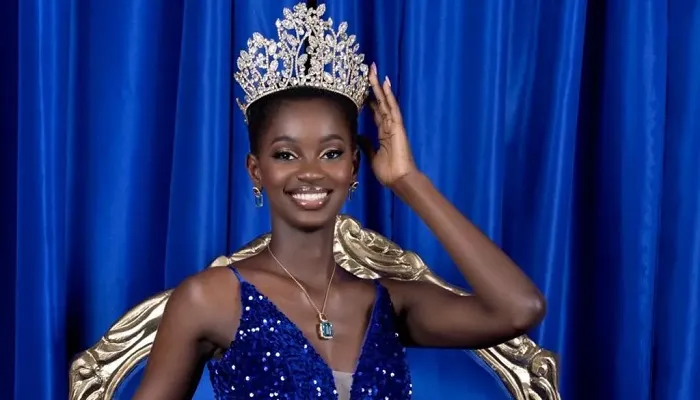In a bold move to redefine beauty standards, the Miss Ivory Coast pageant has introduced a ban on wigs, weaves, and hair extensions for contestants in the preliminary rounds of the competition. This groundbreaking decision, made by the pageant organizers, aims to promote natural beauty and highlight the unique features of African women.
For years, the pageant scene in Ivory Coast has been dominated by long wigs and extensions, with contestants often spending large amounts of money on their appearance. Over the course of more than 60 years, only two women have notably bucked the trend, with the most recent example being Marlène-Kany Kouassi, who won the Miss Ivory Coast title in 2022 while proudly sporting her natural short hair.
However, the new rules represent a shift in perspective. “We want the candidates to be natural. Whether with braids or straightened hair, it should be their own. Beauty must be raw,” said Victor Yapobi, the president of the Miss Ivory Coast organizing committee. The pageant will no longer allow wigs or extensions during the preliminary rounds, which are held in 13 cities across the country, as well as two locations abroad for contestants from the diaspora.
Ivory Coast is the only African country implementing such a ban in a national pageant, and this move follows a growing trend of celebrating natural African beauty. The decision is also part of a broader effort to promote authenticity. “We have long tried to encourage a natural look,” Yapobi explained. “For example, cosmetic surgery is not allowed, and skin lightening is discouraged.”
In addition to the new hair rule, the pageant has made other changes to increase accessibility. The minimum height for contestants has been lowered to 1.67 meters (5.4 feet), the age limit has been extended to 28, and the entrance fee has been reduced by over $30 to $50.
These adjustments were made in response to concerns that the competition had become a financial burden for some participants. “We observed that many young women were spending large sums just to compete, and we wanted to ease that financial strain,” Yapobi said.
The new hair rule has sparked mixed reactions among contestants. Some, like 21-year-old Emmanuella Dali, a real estate agent from Daloa, have embraced the change. “I would see other girls with long, artificial hair, and they looked so beautiful,” Dali told the BBC. “This rule gives me more pride as a woman — as an African woman.”
However, others have expressed disappointment, citing the loss of personal expression. “I’m a wigs fan. I love wigs,” said 24-year-old Astrid Menekou, a make-up artist and contestant. “I didn’t expect this rule! But now? I like my hair, and that’s OK.”
The move has led to an ongoing debate about beauty standards in Ivory Coast, where wigs and weaves are extremely popular. For many, wigs are not just a fashion choice but a way to protect natural hair from damage caused by daily styling. However, some have expressed concern that the new rule could hurt local businesses. The hair industry in Ivory Coast is worth over $300 million a year, with wigs and weaves making up a significant portion of that market. “This rule is not good for us,” said Ange Sea, a 30-year-old hairdresser in Daloa. “Many women love wigs. This will hurt our business.”
Despite these concerns, the natural hair movement is gaining momentum. Influencers promoting natural hair care are increasingly popular on social media, and natural hair products are more readily available. Yet, as Florence Edwige Nanga, a hair and scalp specialist in Abidjan, pointed out, “Turn on the TV [here], and you’ll see almost every journalist wearing a wig.” Nanga also warned that beauty enhancements like wigs and extensions can cause hair and scalp problems, such as alopecia or infections.
The impact of the new hair rule on broader beauty norms in Ivory Coast remains to be seen. Should it succeed, it could have significant economic implications, particularly for the wig industry. But for now, the pageant’s organizers are optimistic. “The feedback has been extraordinary. Everyone, even from abroad, is congratulating us for wanting to return to our roots,” Yapobi said.
The fate of the wig ban at the Miss Ivory Coast finals in 2025 remains uncertain. However, the success of this year’s changes could influence future decisions, possibly leading to more inclusive beauty standards that celebrate both natural and styled hair.
For Doria Koré, crowned Miss Haut-Sassandra, the significance of winning with natural hair goes beyond the crown. “Winning with natural hair shows the true beauty of African women,” she said.
As for Emmanuella Dali, although she did not win, she walked away with something even more valuable: confidence. “I didn’t win, but I feel proud. This is who I am,” she said.


